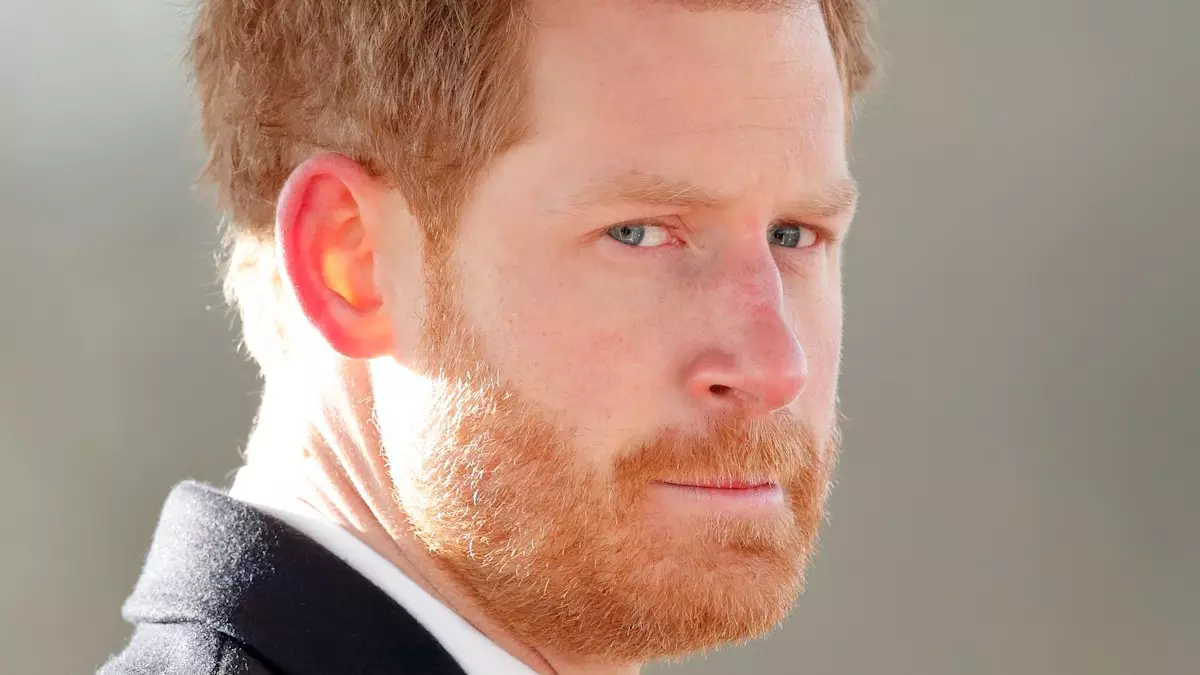Prince Harry, the Duke of Sussex, is set to make a notable return to the UK next month for a significant legal battle against the publishers of The Sun. This case, which is being heard in the esteemed High Court, not only involves Harry but also a prominent political figure, Lord Tom Watson, the former Labour deputy leader. Together, they are launching a lawsuit against News Group Newspapers (NGN) based on serious allegations of unlawful information-gathering and extensive invasions of their privacy. This trial could have far-reaching implications for the ongoing conversation about privacy rights, especially for public figures.
Background of the Case
The roots of this legal scrutiny can be traced back to accusations made by Harry regarding the intrusive methods employed by journalists and private investigators working for NGN. These claims are strikingly serious, encompassing allegations of phone hacking and a slew of other privacy breaches. Prince Harry has highlighted the severe psychological ramifications of being relentlessly pursued by the media, often at the cost of personal safety and mental wellbeing. The trial is touted to last for approximately seven weeks, a duration anticipated to be laden with intense testimony and cross-examinations, especially with Harry himself expected to endure questioning by the barrister representing the newspaper group.
The Duke’s prior experience in the courtroom renders this trial highly significant. In 2023, Harry testified in front of the same judge against Mirror Group Newspapers over similar accusations related to phone hacking. This background enhances the stakes at this present trial, as Harry seeks to hold the publishing giant accountable for what he characterizes as egregious violations of privacy that have persisted unchecked for years.
During a summit held in New York in December 2022, Prince Harry elaborated on why pursuing this case against NGN is pivotal for him. He revealed that over 1,300 individuals have settled their claims against the publisher, suggesting a pattern of behavior that pushes victims to relinquish their right to accountability for fear of further repercussions. He stated, “They’ve settled because they’ve had to settle. So therefore, one of the main reasons for seeing this through is accountability, because I’m the last person that can actually achieve that.” Such sentiments reflect the broader frustration felt by many regarding the entrenched power of media moguls and their operational ethics.
The tension surrounding this case is compounded by the Duke’s ongoing struggles with security concerns during visits to the UK. Following his relocation to California in 2020, where he and Meghan Markle stepped back from their roles as senior working royals, Harry has expressed that he cannot guarantee the safety of his family whenever they return to British soil. This predicament became particularly pronounced after a notable change in his taxpayer-funded security protections during his visits back to the UK.
The Implications for Meghan Markle
Prince Harry is expected to make this trip alone, as his wife, Meghan Markle, will likely remain in Montecito, California, tending to their two young children, Archie and Lilibet. Meghan’s absence from this trip speaks volumes about the ongoing complexities of their situation. Meghan’s reluctance to return to the UK stems not only from security concerns but also from the pervasive media scrutiny and the narrative that often surrounds her.
This absence resonates with insights shared by royal experts; for instance, Hannah Furness, The Telegraph’s Royal Editor, noted that the couple will likely remain away from the UK until they find resolutions to their security conundrums. The implications of this separation carry significant emotional weight, suggesting that the couple prioritizes their family’s safety and emotional well-being above all else.
The legal proceedings raise broader questions about the relationship between public figures and the media. A growing consensus is emerging that advocates for more stringent regulations around media behavior, particularly concerning private individuals’ rights to protect their personal lives. Harry’s case showcases how the balance between public interest and personal privacy is becoming increasingly skewed, and how public figures, often vilified by the media, are striving to reclaim their narratives.
As the trial approaches, the anticipation continues to build, with public interest keenly focused on the outcomes of this legal confrontation. Will Prince Harry be successful in securing accountability for the alleged misdeeds of a powerful publisher? The answer to that question might resonate well beyond the courtroom—it could redefine the parameters within which media entities operate in relation to their subjects. The outcome may also significantly shape the public’s perception of the Duke and Duchess of Sussex and their ongoing quest for justice. Only time will tell what ripples these proceedings will create in the ever-evolving landscape of celebrity and public scrutiny.

